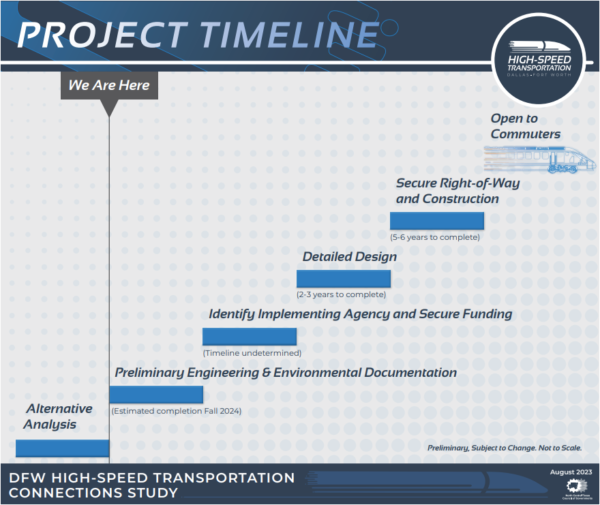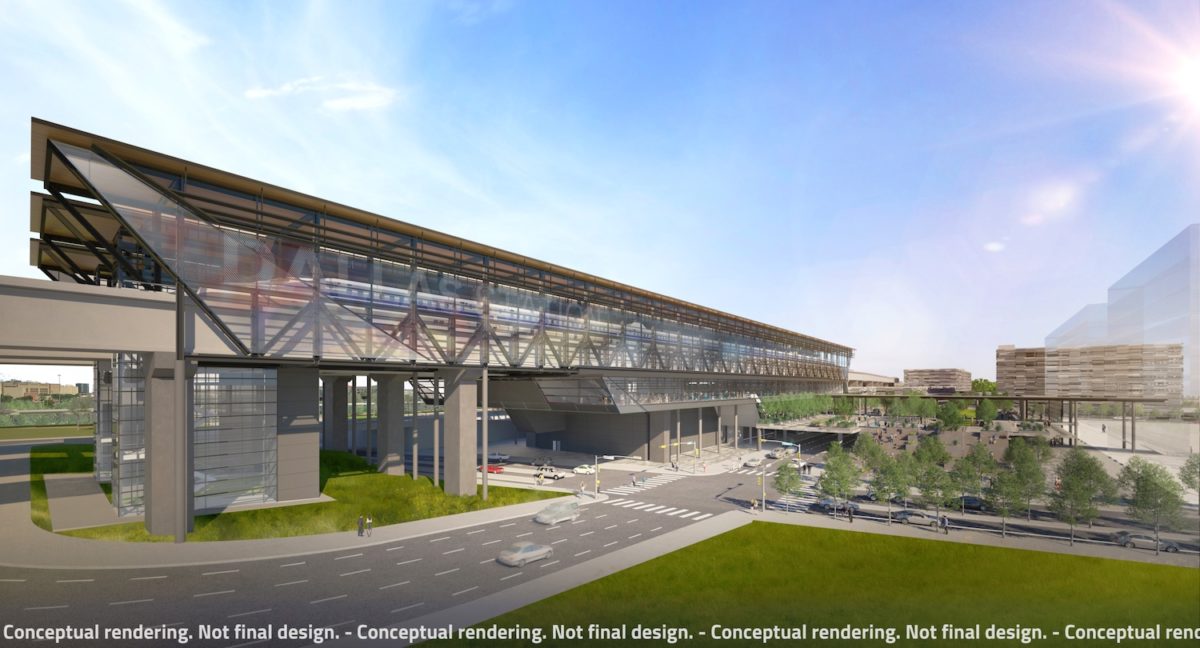North Texans may be getting a new and faster way to navigate the Dallas-Fort Worth area. The North Central Texas Council of Governments (NCTCOG) proposed a high-speed rail between Fort Worth and Dallas. Thus, cutting the average commute time from 45 minutes to 20 minutes. According to the NCTCOG, the DFW area population is projected to grow 57% between 2023 and 2045. It is also expected to experience a 42% growth rate in regional employment. Dan Lamers, an NCTCOG senior program manager for transportation planning, said DFW is becoming a “mega-region,” including Texas and neighboring states. The region could drive much of the economy in the southern United States. In response, officials wanted to look into ways of connecting the metro areas within the “mega-region”. 
Proposed high-speed rail to connect Fort Worth-Arlington-Dallas
A new mode of transportation may be coming to the DFW area.
By Jordan Montgomery, Staff Writer
Published Sep 18, 2023
A proposed station concept rendering of the high-speed rail that would get passengers across DFW in 20 minutes.
Source: Texas Central
More to Discover







